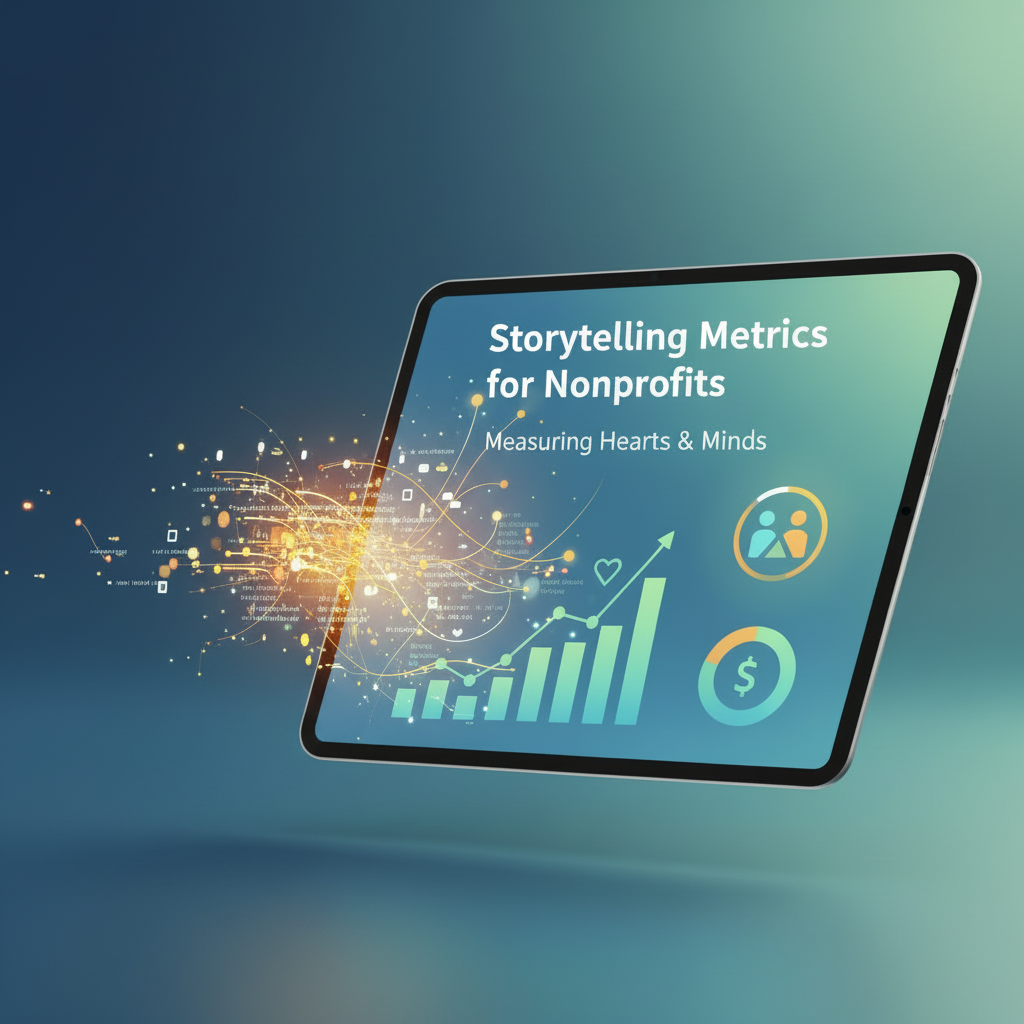Music with a Message: Social Justice in Music Videos

Social justice music videos offer a compelling blend of storytelling and activism, providing non-profits with a powerful tool to amplify their mission. These videos are not just entertainment; they are vehicles for change and awareness.
Key Points:
- Inspire Change: Music videos with social justice themes highlight crucial issues such as inequality and discrimination.
- Amplify Voices: They give a platform to marginalized communities, fostering empathy and understanding.
- Drive Impact: Effective storytelling can translate into measurable outcomes like increased donations and community growth.
Music has long served as a catalyst for social change. From Bob Dylan to Kendrick Lamar, artists have harnessed its power to challenge injustice and promote equality. Today, non-profits and advocacy groups can leverage this rich tradition to engage audiences and drive their missions forward.
When visual storytelling is paramount, social justice music videos stand out as a vital tool for organizations seeking to create an emotional impact and raise awareness about pressing social issues.

The Power of Music Videos in Social Justice
Music videos are more than just a visual treat; they are a powerful medium for social justice, capable of changing perceptions and sparking change. Let's break down how they work their magic in three key areas: identity, equality, and awareness.
Identity
Music videos celebrating identity can uplift and empower marginalized communities. Take Beyoncé's Black Is King, for example. This visual album is a vibrant celebration of Black culture and beauty. It redefines Black identity, offering a narrative that is both empowering and affirming. By showcasing cultural heritage and pride, such videos provide a platform for communities to see themselves represented in a positive light.
Equality
Music videos can be a rallying cry for equality. Consider We Exist by Arcade Fire, which tackles LGBTQ+ rights. The video portrays the journey of a young person struggling with identity and societal acceptance. By highlighting personal stories, these videos foster empathy and challenge viewers to confront their biases. They remind us that equality is not just a concept but a daily struggle for many.
Awareness
Raising awareness is perhaps the most potent aspect of social justice music videos. Childish Gambino's This Is America is a prime example. Its stark portrayal of gun violence and racism in the U.S. forces viewers to confront uncomfortable truths about society. Similarly, Radiohead's All I Need sheds light on economic disparity and child labor, making viewers question the origins of everyday goods.
Through compelling storytelling and striking visuals, these videos cut through the noise, making complex issues accessible and emotionally resonant. They engage viewers on a personal level, prompting reflection and, often, action.
Social justice music videos are a dynamic force for change. They amplify voices, challenge norms, and inspire movements, making them indispensable tools in the fight for a more just and equitable world.
Top 10 Social Justice Music Videos
"This Is America" by Childish Gambino
Childish Gambino's This Is America is a powerful critique of gun violence, racism, and police brutality. The video juxtaposes energetic dance sequences with stark scenes of violence, forcing viewers to confront harsh realities. It highlights the ongoing struggles faced by Black Americans and serves as a call to action against systemic injustice.
"Black Is King" by Beyoncé
In Black Is King, Beyoncé celebrates Black identity and beauty through a visually stunning narrative. This visual album reimagines the story of The Lion King while emphasizing cultural heritage and pride. It's a vibrant tribute to Black culture, offering empowerment and redefining how Black identity is perceived globally.
"Born Free" by M.I.A.
M.I.A.'s Born Free tackles the grim themes of genocide, discrimination, and oppression. The video presents a fictional world where redheads are persecuted, serving as a metaphor for real-world issues of racism and tyranny. Through this bold narrative, M.I.A. challenges viewers to reflect on the dangers of unchecked hatred and prejudice.
"1-800-273-8255" by Logic feat. Alessia Cara & Khalid
Logic's 1-800-273-8255 brings attention to mental health and the importance of acceptance and adversity. The video follows a young man's journey through struggles with identity and acceptance, ultimately finding hope and support. It underscores the vital message that help is available and that mental health matters.
"We Exist" by Arcade Fire
Arcade Fire's We Exist is a poignant exploration of LGBTQ+ rights and empowerment. The video features a trans woman, played by Andrew Garfield, facing prejudice and ultimately finding strength through self-expression. It's a powerful plea for equality and acceptance, encouraging viewers to accept diversity and challenge societal norms.
"Straight Outta Compton" by N.W.A
N.W.A's Straight Outta Compton is more than just a song; it's a raw statement on police brutality and racial tension. The video mirrors real-life confrontations with law enforcement, capturing the group's activism against systemic racism. It's a fiery anthem that highlights the struggles of being Black in America.
"Zombie" by The Cranberries
The Cranberries' Zombie digs into the history of sectarian violence and conflict in Northern Ireland. Inspired by the Warrington bombings, the video portrays the impact of violence on everyday life. It's a haunting reminder of the perils of division and the need for peace.
"All I Need" by Radiohead
Radiohead's All I Need addresses economic disparity and modern slavery. The video contrasts the lives of two children: one attending school, the other working in a sweatshop. This stark depiction highlights the injustices of child labor and urges viewers to consider the human cost behind consumer goods.
"Sleep Now in the Fire" by Rage Against the Machine
Rage Against the Machine uses Sleep Now in the Fire to protest corporate greed and make a bold political statement. Directed by Michael Moore, the video features the band performing outside the New York Stock Exchange, directly confronting Wall Street's excesses. It's a call to action against economic injustice.
"Jeremy" by Pearl Jam
Pearl Jam's Jeremy explores the societal impact of mental health and violence. Inspired by a tragic real-life event, the video depicts the struggles of a troubled youth. It serves as a poignant commentary on the consequences of neglecting mental health and the need for compassion and understanding.
Social Justice Music Videos on YouTube
YouTube has become a powerful platform for sharing social justice music videos. These videos amplify messages of equality, awareness, and change, reaching audiences worldwide.
YouTube Playlists
Playlists like Social Justice Songs curate impactful songs and videos that inspire action and reflection. These collections often feature songs addressing critical issues like racism, gun violence, and mental health. Curated playlists make it easy for viewers to find new music and revisit classics that have shaped social movements.
Modern Songs
Modern artists continue to leverage YouTube to spread messages of social change. For instance, Where Is The Love by Black Eyed Peas questions societal values, focusing on gun violence and discrimination. Similarly, All About That Bass by Meghan Trainor challenges body shaming, encouraging self-love and acceptance.
These videos not only entertain but also educate. They encourage viewers to think critically about the world and their role in it.
Impact and Reach
The reach of social justice music videos on YouTube is vast. They can go viral, sparking global conversations and movements. For example, Shervin Hajipour's Baraye became an anthem for the "Woman, Life, Liberty" movement in Iran, illustrating the power of music in uniting people for a cause.
YouTube's accessibility allows these videos to transcend borders, making them accessible to anyone with an internet connection. This democratization of content means that powerful messages can reach those who need to hear them most.
In summary, YouTube serves as a critical hub for social justice music videos, enabling artists to share their messages with a global audience and inspire change.
Frequently Asked Questions about Social Justice Music Videos
What are social justice music videos?
Social justice music videos are visual and auditory works that address societal issues like racism, inequality, and mental health. They combine music and storytelling to highlight injustices and advocate for change. These videos often feature powerful imagery and lyrics that encourage viewers to reflect on social issues and inspire action.
How do music videos promote social change?
Music videos have a unique ability to promote social change by engaging audiences emotionally and intellectually. They use compelling visuals and narratives to:
- Raise Awareness: By depicting real-world issues, these videos inform viewers about injustices they might not be aware of.
- Foster Empathy: Storytelling in music videos can evoke strong emotional responses, helping viewers understand the experiences of others.
- Inspire Action: Many videos include calls to action, encouraging viewers to get involved in causes or movements.
For instance, Sam Cooke's "A Change Is Gonna Come" became an anthem for the civil rights movement, illustrating the power of music to unite people and drive social progress.
What are some modern songs about social justice?
Modern artists continue to create impactful social justice music videos. Some notable examples include:
Where Is The Love by Black Eyed Peas: This song addresses gun violence and discrimination, questioning societal priorities and urging for love and unity.
All About That Bass by Meghan Trainor: Tackling body shaming, this song promotes self-acceptance and challenges societal beauty standards.
A Change Is Gonna Come by Sam Cooke: Although released in 1964, its message of hope and change remains relevant, inspiring new generations to fight for equality.
These songs, along with their videos, serve as powerful tools for education and activism, reaching diverse audiences and sparking meaningful conversations.
Conclusion
At Narratives, we believe in the transformative power of storytelling. Digital storytelling through music videos is a potent tool for social change. It connects communities, lifts underrepresented voices, and inspires action.
Social justice music videos do more than entertain; they educate, provoke thought, and drive awareness. They tackle issues like racism, mental health, and inequality, providing a platform for voices that need to be heard. For example, the song "Make Me Black" by Ashley DuBose, as featured in the STEAM for Social Change program, empowers young people to accept their identity and heritage.
By collaborating with non-profits and purpose-driven organizations, we help create content that highlights their impact and fosters community engagement. Our approach focuses on crafting emotionally resonant stories that inspire and mobilize.
Community impact is at the heart of what we do. Through high-quality video and multimedia content, we aim to build trust and increase visibility for the causes that matter. Whether it's raising awareness or driving donations, our goal is to make a difference.
Explore how we can partner with you to tell your story and amplify your impact. Learn more about our media services and how we can help you create change through digital storytelling.


